Die Zweite Heimat - Chronik Einer Jugend Online
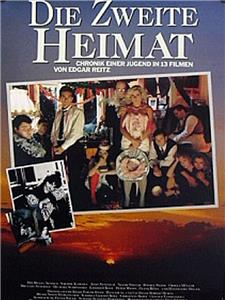
The movie consist of 13 separate episodes each handling a period between 1960 and 1970. The length of these periods varies from one day to some years. It tells the story of a group of people in Munich (mostly music and film students). Every episode focuses on a different character from the group, although the main storyline and character, the young composer Hermann, continues. The movie tells a story in many different levels about love, friendship, misfortune, loss, art, politics, history with important historic events of the decennium in the background. It was the most costly and ambitious drama production in German television, although very cinematographic. Believed to be partly autobiographic.
| Series cast summary: | |||
| Henry Arnold | - | Hermann Simon 13 episodes, 1992 | |
| Salome Kammer | - | Clarissa Lichtblau 13 episodes, 1992 | |
| Frank Röth | - | Stefan Aufhauser / - 13 episodes, 1992 | |
| Noemi Steuer | - | Helga Aufschrey 11 episodes, 1992 | |
| Daniel Smith | - | Juan Subercasseaux 11 episodes, 1992 | |
| Franziska Traub | - | Renate Leineweber 11 episodes, 1992 | |
| Lena Lessing | - | Olga Mueller 11 episodes, 1992 | |
| Martin Maria Blau | - | Jean-Marie Weber 11 episodes, 1992 | |
| Armin Fuchs | - | Volker Schimmelpfennig 11 episodes, 1992 | |
| Hannelore Hoger | - | Elisabeth Cerphal 10 episodes, 1992 | |
| Michael Schönborn | - | Alex 10 episodes, 1992 | |
| Holger Fuchs | - | Bernd 9 episodes, 1992 | |
| Anke Sevenich | - | Waltraud 'Schnüsschen' Schneider 8 episodes, 1992 | |
| László I. Kish | - | Reinhard Doerr 8 episodes, 1992 | |
| Edith Behleit | - | Mutter Lichtblau 8 episodes, 1992 | |
| Peter Weiss | - | Rob Stuermer 8 episodes, 1992 | |
| Manfred Andrae | - | Gerold Gattinger / - 7 episodes, 1992 | |
| Michael Stephan | - | Clemens 7 episodes, 1992 | |
With a total running time of 25 hrs 32 min, it holds the Guinness World Record for 'Longest Film Commercially Shown In Its Entirety' as it premiered on theater screens in Munich, Germany in September 1992.
Salome Kammer who plays Clarissa Lichtblau, Hermann's main love interest, is a cellist in real life, and later married director Edgar Reitz.
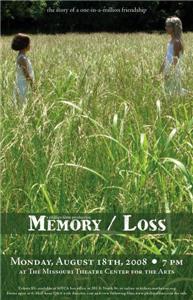
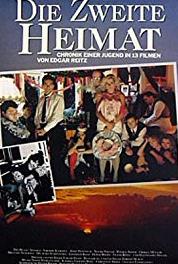

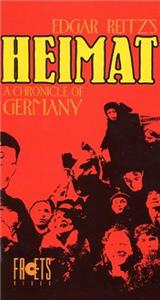

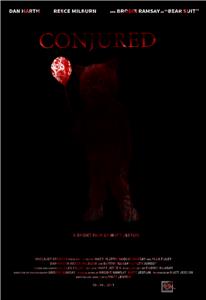
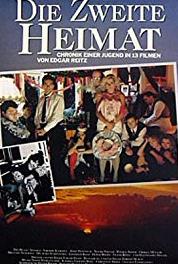
User reviews